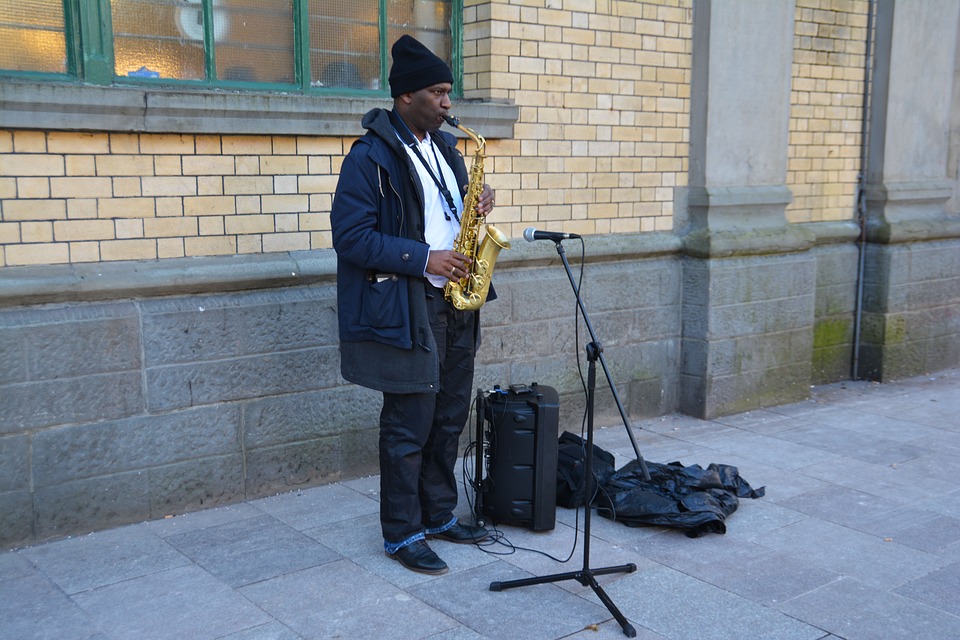Needless to say, being a solo musician can be a tough gig. As the majority of musicians earn less than £25,000 per year, any opportunity to earn a little extra money on the side is certainly something to be looked at. In this blog, we’ll take a look at five ways solo musicians can earn a little extra money…
Perhaps your main gig is as part of a band or group, and you’re looking to make a little extra money.
Alternatively, maybe you’re just coming out of a group and are looking for an exciting new start as a solo musician.
Whatever the circumstances, here are some potential avenues for new work…
1. Session work
The session industry can be a tough nut to crack, but those who are able to get regular session work are likely to also find it easier to get more gigs and network with others in the industry.
That said, networking is probably also the best place to start when looking for session work.
Meeting producers who might have clients in need of a professional musician, or acts that are looking to supplement their line up for big gigs, should definitely be the goal.
For solo musicians, it is best to simultaneously develop a portfolio of work to help establish a career as a session musician.
A portfolio should include great promotional material, the leading musicians you’ve worked with, what instruments you play and your level of skill or formal qualifications.
All of this can be listed on your own website, in order to easily pitch to new clients.
Keeping potential clients informed of how your musical career is going a great way to gain more work. This can be done effectively through updating social media like Instagram, Twitter and Facebook.
2. Becoming a dep
Similar to session work, a dep player will find that they are hired frequently if they are able to perform more than one instrument, to a high standard.
For many musicians, multiple instruments will include those from the same family.
Possibly the most important aspects of being a successful dep musician are reliability, flexibility and versatility.
A dep should be available at short notice and able to perform a wide variety of well known songs.
Dep musicians should also be able to learn new songs quickly and preferably skilled at sight reading, especially if they play a brass instrument or are part of a string section.
It is a good idea to keep up to date with all the modern function band material.
Take a look over the repertoire section of all your local bands and learn anything you aren’t familiar with, so it’s ready to go when needed.
If you’re looking to pick up more work as a dep musician, then try joining facebook groups like Dep Musicians in the UK or UK Musicians for gigs.
3. Busking
While it is incredibly weather dependent, busking can be a surprisingly profitable venture, especially if musicians choose to perform with others over a busy weekend.
Whilst it is common for cities such as London and Manchester to be over saturated with buskers, smaller towns can be more profitable, as buskers are more of a rarity.
On a good day, some musicians can earn between £10-15 per hour, sometimes even more.

4. Diversify, and perform in different bands
For a solo musician, performing in different genres and styles of bands, as well as their own solo gigs, can be a good way to network, get more gigs and increase proficiency of an instrument.
This is particularly popular with pianists, guitarists and drummers as they can adapt their skills to different genres such as jazz or funk/soul, as well as pop/rock.
Top tips to help make more money as a solo musician:
- Be musically versatile
- Practice, practice, practice
- Network
- Learn to sight read
- Be reliable
5. Gig swapping
If you have managed to put together a set (and the equipment) to perform solo gigs, chances are you are you’re already marketing yourself and might have a few venues that you perform in regularly.

However, one thing you might not have thought about is building up a relationship with the other acts that perform at any of your regular venues.
If you have some free time, try and get out to some other peoples gigs and have a chat with them after. You can then suggest that if they ever need to swap any dates, you would be up for it.
Obviously, this would need to be done in concert (pun intended) with the venue organiser. However, if anyone has to rearrange a gig at the last moment, it’s infinitely preferable to make the call with the options of someone else who is ready to take your place straight away.
Whilst this might cost you a pint and a chat, it might end up getting you a string of last minute offers for weekend shows. Also, the added bonus of a connection for last minute cover, should any emergencies arise!
Making a steady income as a solo musician can be challenging, but diversifying your income streams can make a big difference. Whether you’re performing live, teaching, or licensing your music, it’s all about finding the right gigs that align with your skills. One often overlooked avenue is exploring session musician jobs, which allow you to collaborate with other artists or producers while earning on a flexible basis. These roles can offer both creative satisfaction and a reliable source of extra income.
Do you have any unique ways of making a little extra money as a musician? Let us know in the comments below!
Share this:




















